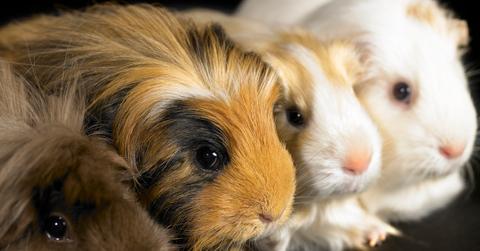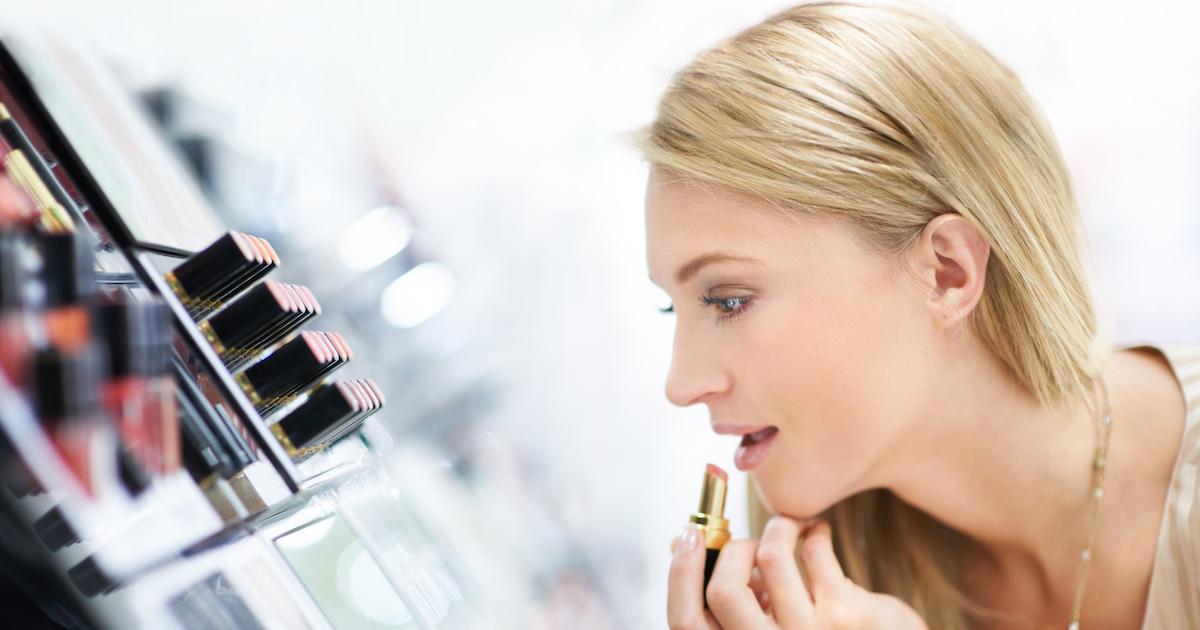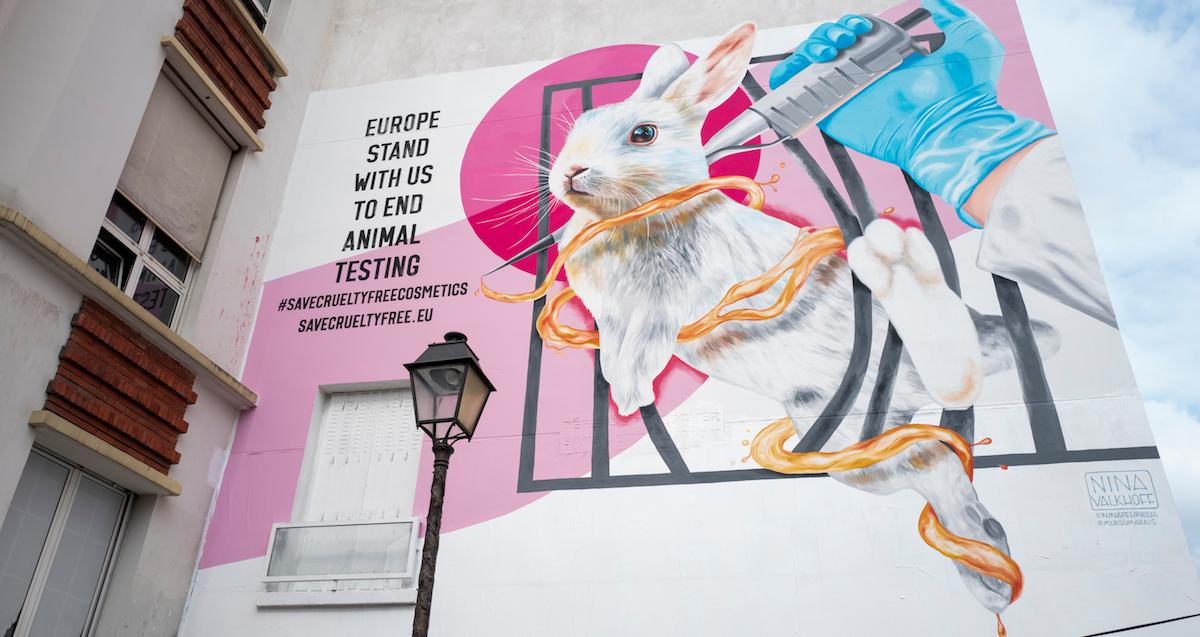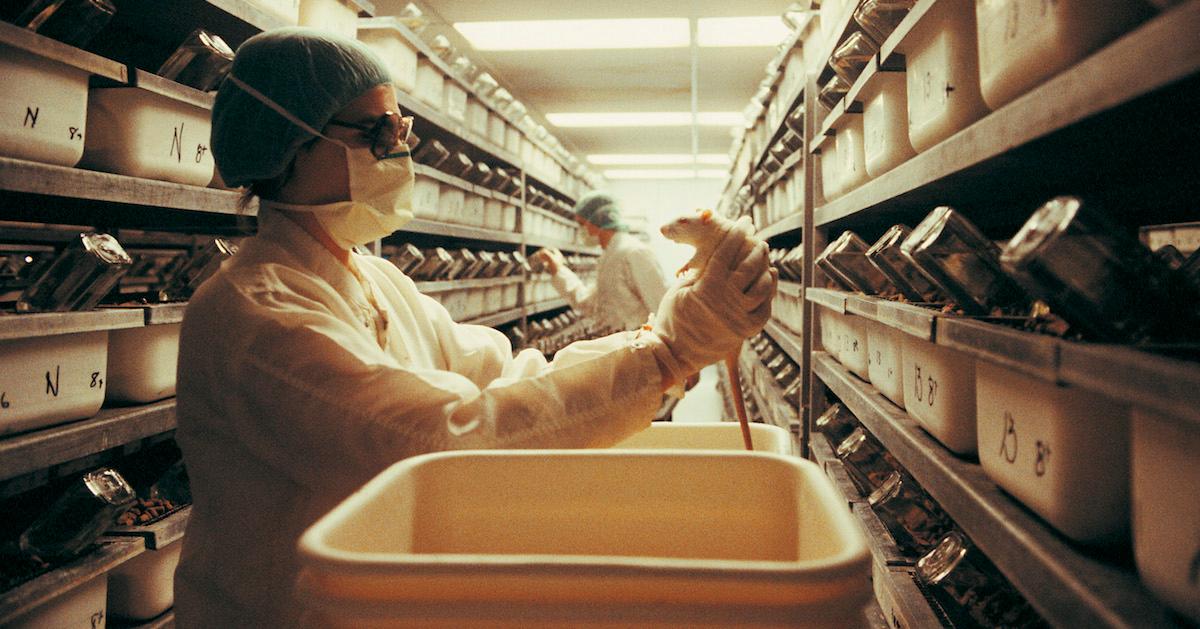These Brutal Cosmetic Testing Methods Are Why We Need Cruelty-Free Makeup
Updated Dec. 15 2022, 4:17 p.m. ET

Animal testing has been a hot topic for many years — some argue that it’s necessary for making cosmetics safe for human use, while other, more rational minds attest that such testing is unnecessarily cruel and ineffective. Even if your opinion lies somewhere in the middle, learning exactly how makeup is tested on animals might help you understand just how inhumane the process truly is.
How is makeup tested on animals?
According to Fine, the most common animal "test subjects" for cosmetics include mice, rats, rabbits, and guinea pigs. The testing is conducted to determine the toxicity of a product, and to observe any skin or eye irritation. Some of them wind up severely injured by this testing methodology, and sometimes, the reaction is so severe that it can result in death.
Testing methods vary based on the animal. According to Cruelty-Free International, guinea pigs are shaved, before they're smothered with cosmetic compounds, to see if there is any allergic reaction. Rats, on the other hand, are forced to eat or inhale active cosmetic ingredients. They, too, have the potentially toxic compounds rubbed into their skin, often for up to three months. Pregnant rats are subjected to the same tests and are then euthanized with their unborn babies after about 21 days.

Mice undergo almost the exact same abuse as rats and guinea pigs, on their ears. According to Cruelty-Free International, rabbits are also exposed to the same compounds as the others, but because they are somewhat hardier, they are forced to take this abuse for a minimum of 28 days and up to 90. Pregnant rabbits and their offspring are also euthanized after testing.
Dog and cat cosmetic testing is rare these days, but it does still happen — more often in the medical testing industry, though. As you may have noticed, animals who don’t perish throughout the testing process are typically killed afterwards, often in inhumane ways and without any form of pain relief.

What is cruelty-free makeup tested on?
As a rule, makeup that is categorized as cruelty-free supposedly is not tested on animals at all. But unfortunately, according to the Leaping Bunny Program, that isn't always the case. The cruelty-free symbol of the leaping bunny (or another accreditation organization) on a cosmetic product is all that can denote that the final product — nor its ingredients — have not been tested on animals for the sake of that product.
Without accreditation, if a company claims they don’t engage in animal testing, that doesn’t mean they don't buy ingredients that are regularly tested on animals — cosmetic compounds might come from overseas labs, factories, and testing facilities where animal testing is still the norm.
The sad fact is that most animal testing occurs at the ingredient level. Only companies that are 100 percent certified an accreditation organization can claim that their products are cruelty-free with any sort of conviction.
That said, there are a number of alternative testing methods for cosmetics, including: in vitro human tissue testing, computer derived prediction testing, and human volunteers, as per the blog Ilana.

Is animal testing for cosmetics even necessary?
According to the Humane Society, animal testing is pointless when it comes to determining the safety of cosmetic compounds. Different species respond in different ways when exposed to the same chemical. If one type of lipstick hurts a rat, there’s no guarantee it will harm humans.
The FDA still insists upon rigorous testing before a cosmetic product can get premarket approval. This does not specifically require the use of animal testing, but the FDA does still require that companies “do whatever is necessary to ensure the safety of their products," which often results in animal testing.
While other governments like those in the European Union EU have banned makeup testing on animals, the U.S. is lagging somewhat behind. According to Britannica, the EU has since banned the testing of cosmetic ingredients on animals. Israel followed suit in 2013, as did India. We trust that it’s only a matter of time before the entire U.S. finally understands how needless and disgraceful this practice is.
CORRECTION, Thursday, Dec. 15, 2022: A previous version of this article, originally published on Sept. 16, 2021, misstated that animal testing on kittens was outlawed; there are no laws protecting cats from cosmetic testing.